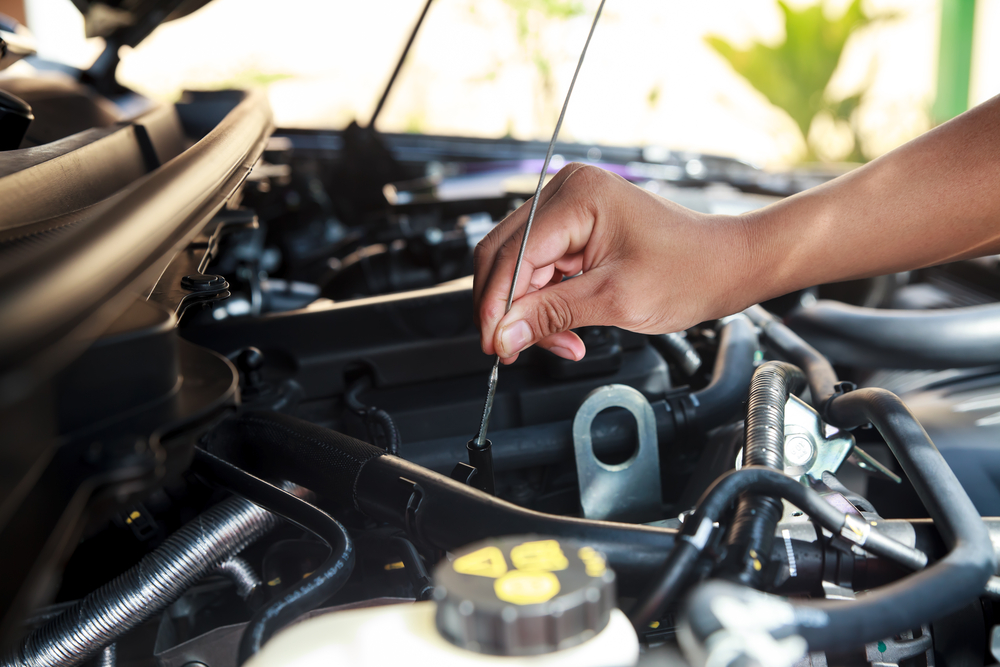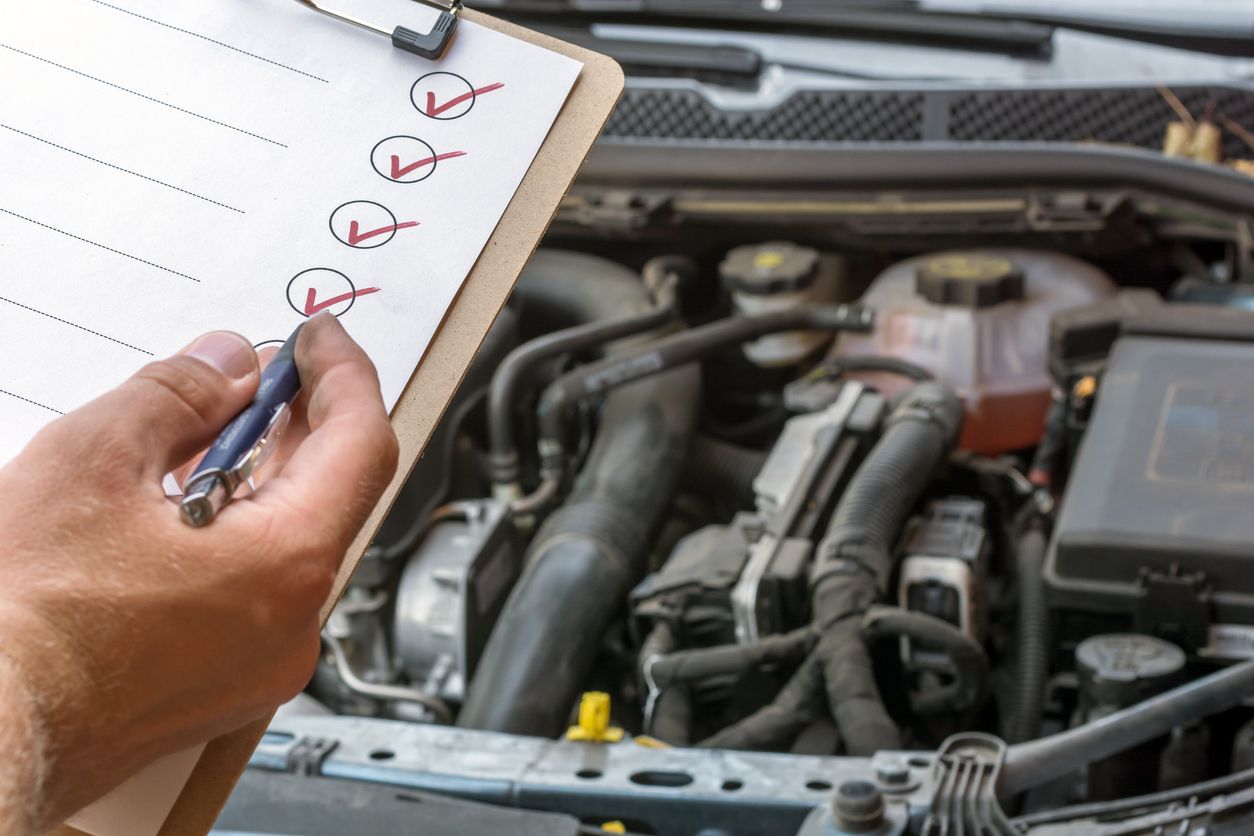All Categories
Featured
Your vehicle counts on different liquids to keep its components running efficiently and effectively. Understanding the role of each fluid and remaining aggressive in maintenance ensures your auto operates at its finest.
![]()
Why It Issues: Without appropriate lubrication, engine parts can grind versus each other, causing considerable damages. Upkeep Tips: Inspect your oil level monthly making use of the dipstick and complement if required. Change the oil and filter according to your automobile's solution schedule, generally every 3,000 to 7,500 miles depending upon the oil type and driving problems. 2. Coolant: Managing Engine Temperature. Coolant, also called antifreeze, aids keep your engine's temperature level within the optimum array. It stops overheating during heat and cold during chilly problems.
Why It Matters: Not enough or abject coolant can bring about engine overheating, which can trigger serious damages. Upkeep Tips: Examine the coolant reservoir on a regular basis and search for leaks or staining. Flush and fill up coolant as suggested, generally every two to 5 years. 3. Brake Fluid: Reputable Stopping Power. Brake fluid is important for your vehicle's braking system, moving the force from your foot on the brake pedal to the brakes themselves. Gradually, brake liquid can soak up wetness, which lowers its effectiveness.
Why It Matters: A compromised braking system can badly impact your safety and security. Upkeep Tips: Check the brake liquid storage tank and guarantee the degree stays within this array. Change the liquid every 2 to 3 years or as needed. 4. Transmission Fluid: Smooth Gear Shifts. Transmission fluid lubricates the transmission elements and ensures smooth gear modifications. It likewise prevents getting too hot by cooling down the system.
![]()
Why It Matters: Disregarded transmission liquid can cause gear slippage, getting too hot, and even complete transmission failure. Upkeep Tips: Monitor the liquid's degree and problem routinely. Replace it according to the supplier's suggestions, frequently every 30,000 to 60,000 miles. 5. Power Guiding Fluid: Easy Maneuvering. Power steering fluid helps in smooth and specific steering. Low or polluted fluid can make guiding a lot more challenging, placing stress on the system.
Why It Issues: Poor guiding responsiveness can endanger your control over the lorry. Maintenance Tips: Routinely inspect the liquid level and shade, and top it off as needed. Be alert to leaks or unusual steering noises. 6. Windshield Washing Machine Fluid: Clear Visibility. While it does not effect performance, windshield washer liquid is important for preserving exposure, particularly in adverse conditions.
![]()
Why It Issues: A tidy windscreen ensures you can see clearly, decreasing the threat of crashes. Maintenance Tips: Fill up the washing machine fluid storage tank often and use a formula fit to your environment to stop cold or spotting. Why Routine Liquid Maintenance is Crucial. Ideal Efficiency: Appropriate liquid degrees and top quality guarantee all systems run smoothly. Safety Assurance: Brake and power guiding fluids directly impact your ability to control the car. Cost Financial savings: Preventative upkeep stays clear of costly repair work by capturing potential concerns early. Long life: Fluids in excellent problem assistance prolong the life of essential parts, consisting of the engine and transmission. Quick Tips for Effective Fluid Upkeep. Comply with the Handbook: Describe your lorry's owner guidebook for details upkeep periods. Look Out for Leaks: Pools under your car can indicate fluid leaks that need immediate focus. Usage Recommended Products: Stay with fluids recommended by your car supplier to stay clear of compatibility problems. Pay Attention to Warning Signs: Dashboard alerts or uncommon performance can signify fluid issues. Verdict. Maintaining your vehicle's fluids is one of the simplest ways to keep it running successfully and securely. Whether it's engine oil, coolant, or brake fluid, each plays a crucial function in your auto's total health and wellness. Routine checks, combined with timely replacements, can prevent break downs, enhance performance, and extend the life of your automobile. Stay proactive, and you'll delight in a smoother and much safer driving experience for several years to find.

- Engine Oil: The Lifeline of Your Engine. Engine oil plays a vital duty in lubing the engine's moving components, lowering rubbing, and shielding against wear and getting too hot. Over time, oil deteriorates or ends up being contaminated with debris, which can endanger its performance.
Why It Issues: Without appropriate lubrication, engine parts can grind versus each other, causing considerable damages. Upkeep Tips: Inspect your oil level monthly making use of the dipstick and complement if required. Change the oil and filter according to your automobile's solution schedule, generally every 3,000 to 7,500 miles depending upon the oil type and driving problems. 2. Coolant: Managing Engine Temperature. Coolant, also called antifreeze, aids keep your engine's temperature level within the optimum array. It stops overheating during heat and cold during chilly problems.
Why It Matters: Not enough or abject coolant can bring about engine overheating, which can trigger serious damages. Upkeep Tips: Examine the coolant reservoir on a regular basis and search for leaks or staining. Flush and fill up coolant as suggested, generally every two to 5 years. 3. Brake Fluid: Reputable Stopping Power. Brake fluid is important for your vehicle's braking system, moving the force from your foot on the brake pedal to the brakes themselves. Gradually, brake liquid can soak up wetness, which lowers its effectiveness.
Why It Matters: A compromised braking system can badly impact your safety and security. Upkeep Tips: Check the brake liquid storage tank and guarantee the degree stays within this array. Change the liquid every 2 to 3 years or as needed. 4. Transmission Fluid: Smooth Gear Shifts. Transmission fluid lubricates the transmission elements and ensures smooth gear modifications. It likewise prevents getting too hot by cooling down the system.

Why It Matters: Disregarded transmission liquid can cause gear slippage, getting too hot, and even complete transmission failure. Upkeep Tips: Monitor the liquid's degree and problem routinely. Replace it according to the supplier's suggestions, frequently every 30,000 to 60,000 miles. 5. Power Guiding Fluid: Easy Maneuvering. Power steering fluid helps in smooth and specific steering. Low or polluted fluid can make guiding a lot more challenging, placing stress on the system.
Why It Issues: Poor guiding responsiveness can endanger your control over the lorry. Maintenance Tips: Routinely inspect the liquid level and shade, and top it off as needed. Be alert to leaks or unusual steering noises. 6. Windshield Washing Machine Fluid: Clear Visibility. While it does not effect performance, windshield washer liquid is important for preserving exposure, particularly in adverse conditions.

Why It Issues: A tidy windscreen ensures you can see clearly, decreasing the threat of crashes. Maintenance Tips: Fill up the washing machine fluid storage tank often and use a formula fit to your environment to stop cold or spotting. Why Routine Liquid Maintenance is Crucial. Ideal Efficiency: Appropriate liquid degrees and top quality guarantee all systems run smoothly. Safety Assurance: Brake and power guiding fluids directly impact your ability to control the car. Cost Financial savings: Preventative upkeep stays clear of costly repair work by capturing potential concerns early. Long life: Fluids in excellent problem assistance prolong the life of essential parts, consisting of the engine and transmission. Quick Tips for Effective Fluid Upkeep. Comply with the Handbook: Describe your lorry's owner guidebook for details upkeep periods. Look Out for Leaks: Pools under your car can indicate fluid leaks that need immediate focus. Usage Recommended Products: Stay with fluids recommended by your car supplier to stay clear of compatibility problems. Pay Attention to Warning Signs: Dashboard alerts or uncommon performance can signify fluid issues. Verdict. Maintaining your vehicle's fluids is one of the simplest ways to keep it running successfully and securely. Whether it's engine oil, coolant, or brake fluid, each plays a crucial function in your auto's total health and wellness. Routine checks, combined with timely replacements, can prevent break downs, enhance performance, and extend the life of your automobile. Stay proactive, and you'll delight in a smoother and much safer driving experience for several years to find.
Latest Posts
Expert Auto Repair Nearby - Trust Montclare’s Certified Professionals
Published Apr 19, 25
2 min read
Add Convenience and Personality to Your Home with Location Rugs
Published Apr 18, 25
1 min read
Change Your Home with High Quality Floor Covering Solutions
Published Apr 17, 25
1 min read
More
Latest Posts
Expert Auto Repair Nearby - Trust Montclare’s Certified Professionals
Published Apr 19, 25
2 min read
Add Convenience and Personality to Your Home with Location Rugs
Published Apr 18, 25
1 min read
Change Your Home with High Quality Floor Covering Solutions
Published Apr 17, 25
1 min read